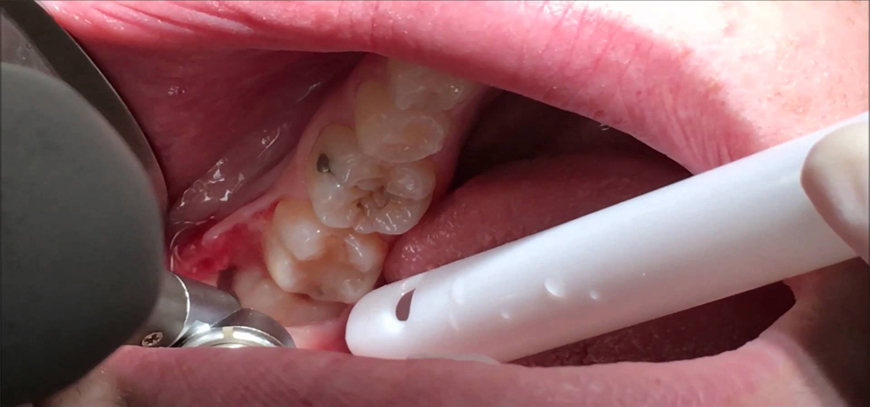Clinic Time:
- Morning: 10 A.M - 2 P.M
Evening: 4:00 P.M - 9 P.M
Contact Info
-
Phone: +91-6261474753
- Send an email
Impacted Wisdom Teeth Removal

Wisdom teeth — also called third molars — are the last set of teeth that grow in. They usually erupt (break through your gums) between the ages of 17 and 25. Sometimes, wisdom teeth erupt in alignment with your other teeth and don’t cause any problems. Other times, they become either partially or fully trapped in your gums or jawbone. This is referred to as impaction. Impacted wisdom teeth can cause a variety of oral health problems, including cavities, gum disease and infection.
What are the symptoms?
Some people with impacted wisdom teeth won’t notice any problems at all, while others will have obvious symptoms. An impacted wisdom tooth might break through the gums, and part of the gums can be seen. This is called a partially impacted wisdom tooth. A partially impacted wisdom tooth may cause food to become trapped and can make cleaning the tooth more difficult. For some people, a partially impacted tooth is very painful.
If the tooth becomes infected or causes other issues, you may have symptoms such as:
- pain or swelling around the jaw
- red, swollen, or bleeding gums
- bad breath
- an unpleasant taste in your mouth
- problems opening your mouth
In other cases, the affected tooth may never break through the gums. This is known as a fully impacted wisdom tooth.
Additionally, impacted wisdom teeth can push against other teeth and cause crowding. A person may need orthodontic treatments to straighten crooked teeth. The tooth may grow into a sac in the jawbone, which fills with fluid, creating a cyst. The cyst can damage the jawbone and nearby teeth and nerves. Rarely, a noncancerous tumor may form, which means surgery to remove tissue and bone may be necessary. The second molar, next to the wisdom tooth, becomes more prone to infection if something is pushing against it.
More serious infections include cellulitis in the cheek, tongue, or throat. Another infection is gingivitis, the gum disease that results when plaque releases toxins that irritate the gums.
What causes an impacted wisdom tooth?
Generally, wisdom teeth become impacted because your jaw doesn’t have enough space for the teeth. Sometimes, the tooth grows in at the wrong angle, which can cause it to become impacted.
- Surgical abrasions (some skin is sanded off)
- Scalpel gingivectomy (surgical tissue removal)
- Laser vaporization (destroying cells with a laser)
- Cryosurgery (tissue freezing)
- Electrosurgery (using electrical current to cut tissue)
- Chemical methods
- Gingival grafts (replacing gum tissue with tissue from the roof of your mouth)
Summary
When a wisdom tooth does not erupt from the gums properly, dentists refer to this as an impacted wisdom tooth. This can result in gum and jaw pain, swollen gums, and general discomfort.
To help ease these symptoms, an individual can take pain relievers, rinse the mouth using a saline solution, or use an antibacterial mouthwash.
A person who develops an impacted wisdom tooth should contact a dentist who may suggest removing it. After surgery, an individual should follow all care instructions the dentist provides to avoid complications such as dry socket.

